Search Thermo Fisher Scientific
Invitrogen
Cytokeratin 14 Recombinant Rabbit Monoclonal Antibody (SC65-06)
This Antibody was verified by Relative expression to ensure that the antibody binds to the antigen stated.
FIGURE: 1 / 22
Cytokeratin 14 Antibody (MA5-32214) in ICC/IF
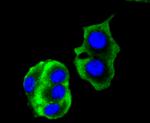
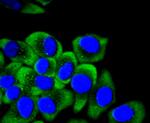
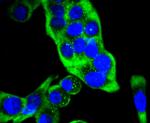
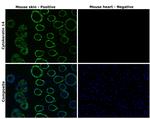
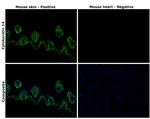
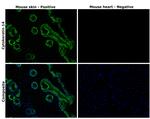
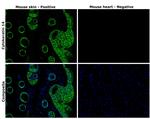
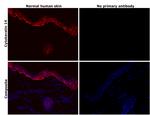
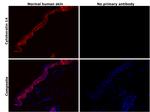
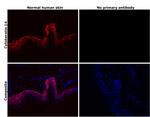
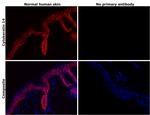

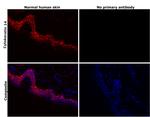
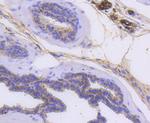
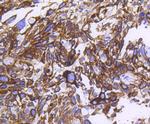
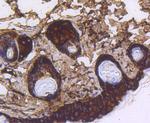
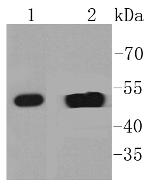
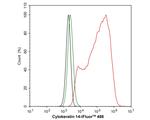
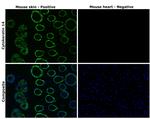
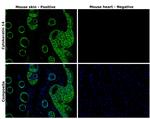
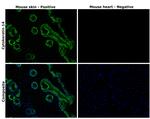
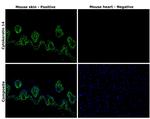
Product Details
MA5-32214
Species Reactivity
Host/Isotype
Expression System
Class
Type
Clone
Immunogen
Conjugate
Form
Concentration
Purification
Storage buffer
Contains
Storage conditions
Shipping conditions
RRID
Product Specific Information
Recombinant rabbit monoclonal antibodies are produced using in vitro expression systems. The expression systems are developed by cloning in the specific antibody DNA sequences from immunoreactive rabbits. Then, individual clones are screened to select the best candidates for production. The advantages of using recombinant rabbit monoclonal antibodies include: better specificity and sensitivity, lot-to-lot consistency, animal origin-free formulations, and broader immunoreactivity to diverse targets due to larger rabbit immune repertoire.
Target Information
Cytokeratins (CK) are intermediate filaments of epithelial cells, both in keratinizing tissue (ie. skin) and non-keratinizing cells (ie. mesothelial cells). At least 20 different CKs can be identified. Biochemically, most members of the CK family fall into one of two classes, type I (acidic polypeptides) and type II (basic polypeptides). Belonging to the type I subfamily of low molecular weight keratins and existing in combination with keratin 5, keratin 14 distinguishes stratified epithelial cells from simple epithelial cells and is useful in identification of squamous cell carcinomas. It is considered a prognostic marker in breast carcinomas. At least one member of the acidic family and one member of the basic family is expressed in all epithelial cells.
For Research Use Only. Not for use in diagnostic procedures. Not for resale without express authorization.
References (0)
Bioinformatics
Protein Aliases: CK-14; cytokeratin 14; Cytokeratin-14; epidermolysis bullosa simplex, Dowling-Meara, Koebner; K14; keratin 14 (epidermolysis bullosa simplex, Dowling-Meara, Koebner); keratin 14, type I; keratin complex 1, acidic, gene 14; Keratin, type I cytoskeletal 14; Keratin-14; Koebner; Type I keratin Ka14
Gene Aliases: AI626930; CK14; EBS3; EBS4; K14; Ka14; Krt-1.14; Krt1-14; KRT14; NFJ
UniProt ID: (Human) P02533, (Mouse) Q61781, (Rat) Q6IFV1
Entrez Gene ID: (Human) 3861, (Mouse) 16664, (Rat) 287701

Performance Guarantee
If an Invitrogen™ antibody doesn't perform as described on our website or datasheet,we'll replace the product at no cost to you, or provide you with a credit for a future purchase.*
Learn more
We're here to help
Get expert recommendations for common problems or connect directly with an on staff expert for technical assistance related to applications, equipment and general product use.
Contact tech support
